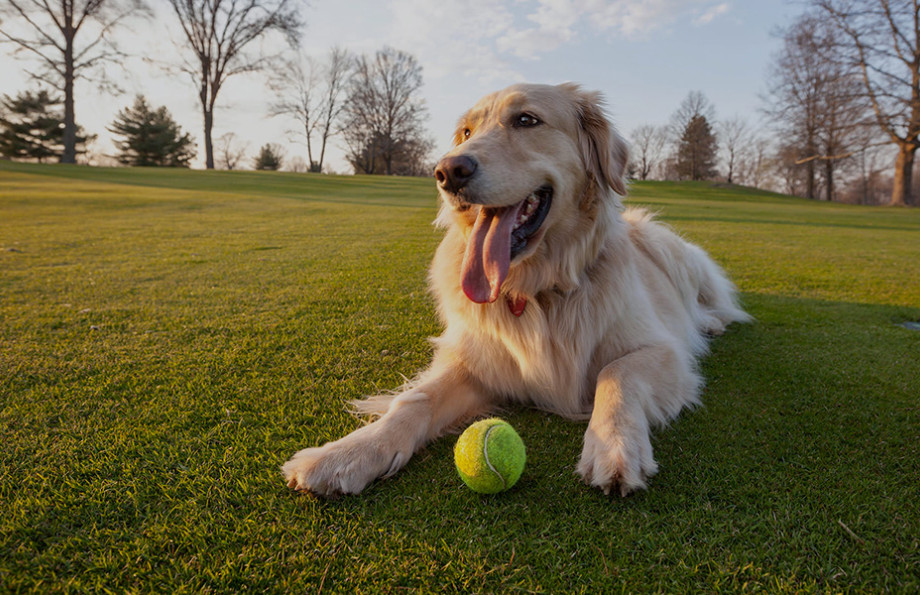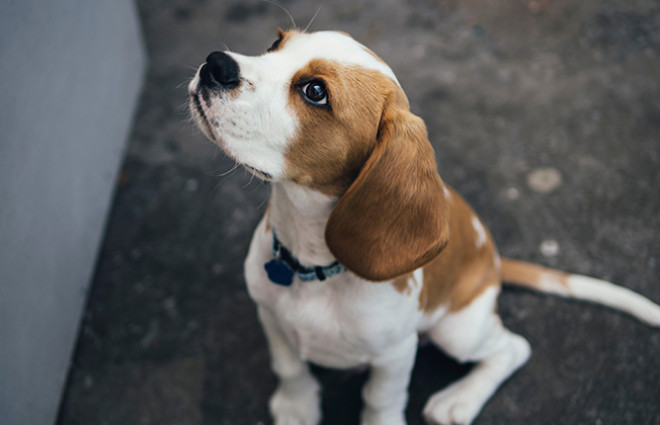Pets and Wild Animals

Animals are an essential part of our daily lives, and their presence is omnipresent on our territory. It is therefore important to establish harmonious cohabitation to guarantee the well-being and safety of both inhabitants and animals.
By exploring the topics below, you can access useful information about animals.
Pets
THE LEGAL CONTEXT
In 2020, the Government of Quebec adopted a provincial by-law to promote the protection of persons by establishing a framework with regard to dogs. This regulation contains minimum mandatory standards that may directly affect you.
Municipalities are responsible for ensuring the respect of these rules, but they cannot override them through their own by-laws. For example, in addition to increased fines for certain dog control offences, the by-law includes two important measures:
- For all dogs: the leash must not exceed 1.85 m in length.
- For dogs weighing 20 kg or more, they must, when in public places, always be on a leash with a halter or harness (except in dog run facilities).
Therefore, to ensure that you are aware of all the rules applicable to a dog and its care, you should consult not only By-law No. 1340, but also the provincial by-law.
KEEP AN EYE ON YOUR PETS!
Owners are responsible for ensuring their pets behave properly. Therefore, any violation of By-law No. 1340 or the provincial dog by-law is subject to a fine, plus administrative costs.
For a cat or a dog:
- without a valid license or not wearing its tag
- dangerous, rabid or acting like it has rabies
- disturbing the peace in the neighbourhood
- damaging a garbage bag
- found in a park other than the dog run
- found on private property without the property owner’s consent
- dog that has bitten or attempted to bite a person or another animal
- dog without a leash or with a leash exceeding 1.85 m.
- dog weighing 20 kg or more on a leash without a halter or harness (except in a dog run).
DOG OR CAT LICENSE: INDISPENSABLE
All dogs and cats must have a license to keep them. This license is valid from the time it is obtained until December 31 of the current year. It is then renewable annually on January 1 of the following year.
The price depends on whether or not the animal has been neutered. The application must be accompanied by a document attesting the breed in the case of a dog, a rabies vaccination certificate and, if applicable, a certificate of castration or sterilization and all other information and documents required on the permit application form.
The price and conditions for obtaining a dog or cat license are detailed in By-law No. 1340. available at the Town Hall Service Counter.
Here is the link to the online registration and/or renewal form in Gestipattes.
Information:info@ville.mont-royal.qc.ca
ABANDONED OR INJURED ANIMAL: WHAT TO DO?
If you see an abandoned or injured pet on public property, call Public Security at 514 734-4666. If the animal is wearing a tag, an agent will contact the owner. Otherwise, the animal will be kept at the Public Security offices (10 Roosevelt Avenue) for a few hours before being transferred to Contrôle Animal Vaudreuil Soulanges, where it will be housed at the owner’s expense (which includes the pick-up fee and any fur maintenance fees).
Residents looking for a lost pet should first contact Public Security (514 734-4666) and then Contrôle Animal Vaudreuil Soulanges (450 510-1508 or canindusuroit@outlook.com.)
Contrôle Animal Vaudreuil Soulanges will also pick up, at the owner’s expense, pets that the owner wants or needs to give up. In such cases, the pet’s veterinary records and any other useful information about the pet should also be provided.
Contrôle Animal Vaudreuil Soulanges
Richard Seymour
1269 Harwood Road
Vaudreuil-Dorion, Quebec J7V 8P2
Wild Animals
Wild animals: Measures for keeping them away from you home
Public Security, in collaboration with Centre Canin de Suroît, handles all matters relating to wild animals in the Town.
To keep wild animals such as skunks, squirrels and racoons out of your yard, you should take a few precautions. The best way to discourage animal pests is to make sure your household waste is kept in tightly closed garbage containers. It is also helpful to wait until collection day before putting out the garbage. Obviously, you should avoid taming wild animals, in particular squirrels, by feeding them. Bird feeders can sometimes attract small rodents. You can also prevent animals from building a home under balconies, verandas and garden sheds by blocking their access.
If any of these animals turn up in your yard, you may find it useful to know that squirrels do not like cayenne pepper, that skunks and woodchucks are deterred by the smell of ammonia and that racoons avoid light and noise.
For a fee, cages can be rented from Contrôle animal Vaudreuil-Soulanges (450 510-1508). Humane Wildlife Control (514 395-4555 or 1 888 592-0387) also provides animal removal services. It is recommended that you inquire about costs before requesting removal.
As wildlife is protected under the Act respecting the conservation and development of wildlife (C.Q.L.R. c. C-61.1), it is strongly recommended that you hire professionals for any residential wildlife removal.
Removal of dead animals
When located on private property, it is the owner's responsibility to pick up the dead animal, at their expense. For small animals such as squirrels or birds, they can simply be placed in the garbage in a bag for regular garbage collection. For larger animals, owners must dispose of them at their own expense, either at the SPCA or through a specialized private contractor.
On the other hand for wild animals found dead on the public road, one can call Public Security who will call a specialized private contractor to collect it.
Note that dead animals, including birds, should not be handled without some kind of protection (gloves, plastic bag, hand washing, etc.).
Stray Cats: Trap-Neuter-Release-Maintain (TNRM) Program
The Town offers a program to trap, neuter, release and maintain stray cats on its territory. The SPCA Montréal is responsible for the program, in collaboration with our Public Security Department.
Program outline
- The objective of this initiative is to limit the proliferation of stray cats on the territory.
- Residents who notice the presence of stray cats (i.e. without a known guardian, a license or a collar, and sick or visibly ill) can participate in the program for free.
- Participants will be provided with a cage and detailed instructions for its use.
- In the event of capture, participants must transport the stray cat to the SPCA, where the animal will be neutered, vaccinated, dewormed, eartipped or euthanized, depending on its condition.
- If the cat is rescued, the participant commits to bring the cat home for a period of time, possibly to release it into the wild.
- If he catches anything other than a stray cat, a participant is required to release the animal immediately.
How to participate?
It is mandatory to visit our Public Security counter during office hours to fill out a program registration form. This form is not available online.
Once the form has been filled out and duly authorized by a Public Security officer, participants must go to the SPCA to obtain their cage and learn the detailed terms and conditions of the program.
Additional information
The SPCA is responsible for informing potential participants about this program. The mandate of Mount Royal’s Public Security Dept. is limited to receiving and authorizing registration forms.
Contacts
-
Public Security (24/7)
Dispatch10 Roosevelt Avenue
Mount Royal, Quebec H3R 1Z4 -
Nadine Chammas
Customer Service Agent90 Roosevelt Avenue, 2nd Floor
Mount-Royal, Quebec H3R 1Z5 -
Margaret Ayache
Customer Service Agent90 Roosevelt Avenue, 2nd Floor
Mount Royal, Quebec H3R 1Z5
Register your pet
Use our online service to register them



